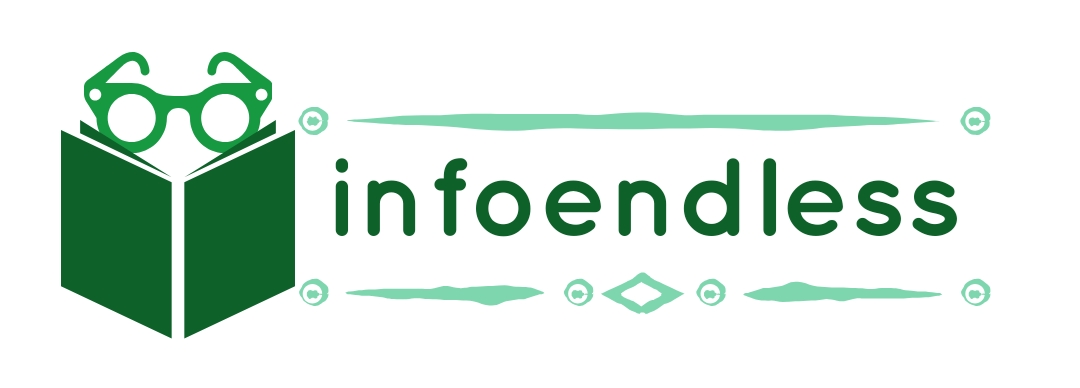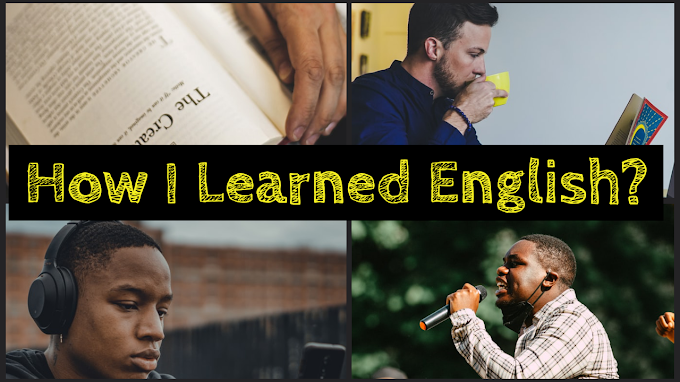Q.1 Discuss the Constitutional and Legal rights of Scheduled Castes and Scheduled Tribes
- The SC & ST are the backward class of citizen’s disadvantaged people in India. The SC may belong to any religion Hinduism, neo-Buddhism, and Sikh. There's no religious bar as far as it is concern that is SC/ST may belong to any religion.
Constitutional Right of SC/ST castes.
The constitution of India provides various constitutional
rights in the form of safeguards to Scheduled Caste (SC) and Scheduled Tribes
(ST). The safeguards are:
- Social Safeguard
- Economic Safeguard
- Educational and Cultural Safeguard
- Political Safeguard
- Service Safeguard
- Other Safeguards
- Social Safeguard: Article 15 of the constitution of India provide for social equality and equal access to a public place like a public parks, museums, wells, Bathing Ghats, Temple, etc. The states shall not discriminate against any citizens on grounds of religion, race, caste, sex or place of birth.
- Economic Safeguards: Article 23 and 24 provide for the abolition of traffic in human beings and other forms of forced labor. And no child below the age of 14 years shall be employed to work in any factory or mine or engage in any other hazardous employment labor. Working without payment or a bonded labor which was practiced by the landlord has been declared as a crime and punishable by law
- Educational and Cultural Safeguards: Article 15(4) give the authority to the state to make any special provisions for the development or improvement of backward classes of citizens including SC/ST. The government can Reserve the seat and provide fee concession for a backward class to protect the educational interest of the weaker section of the society.
- Political Safeguard: The constitution of India provides reservation of seats for SC/ST to local bodies like Municipal Corporation, Panchayat of the State or Union Territories, Legislative Assemblies of the State, and Lok Sabha. Article 243D, 243T states that seat shall be reserved for SC/ST in village Panchayats and in municipalities.
- Service Safeguards: Article 16 (4) states that the State may reserve the post for members of the backward caste that is SC/ST which are not adequately represented in the services under the State, so as to uplift the weaker sections of the society. Article 16 (4A) allows the state to implement reservation in matters of promotions for SCs and STs. Article 320(4) states that while taking into consideration the claims of SC/ST in making appointments to the public services of the Centre/State, the consultation with the respective Public Services Commission (UPSC/PSC) shall not be required.
- Other Safeguard: Article 338/338A/339 establishes a National Commission of SCs and STs. Article 339 allows the central govt. to direct states to put (plan, agreement, etc.) into effect for the development of SC/STs. Article 340 allows the president to appoint an authority to investigate the condition of socially and economically backward classes and table the report in the parliament.
Legal Rights of SC/STs
- The parliament in pass bonded labor system (Abolition) Act, 1976 for identification, liberation, and rehabilitation of bonded labor.
- The Parliament has introduced The Child Labour Act 1986 to prohibit the employment of children in certain occupations and processes.
- The Untouchability Offences Act 1955 renamed as 'Protection of Civil Rights Act 1976 provides penalties for stopping a person entering a place of worship or from taking water from the public well.
- The Government of India Passed the Schedule Caste and Schedule Tribes Act, 1986 to stop atrocities (violence) against SC/ST.
Q.2 Discuss the Form of Violation of Rights of Scheduled Caste and Scheduled Tribes
The problem of untouchability according to article 17 the
constitution of India untouchability is removed and its practice in any form of
banned. This means the practice of untouchability is illegal and anyone doing
is so punishable by law. To make untouchability law stricter Parliament passed
the untouchability offence Act 1955 which was amended and renamed as protection
of civil rights act 1955 despite the untouchability act some of the scheduled
castes still feels this thing of untouchability which affects their development.
- Economic Exploitation: The schedule caste also faces the problem of economic exploitation. In rural India, SC/Sts face economic exploitation on account of their illiteracy and poverty. The landlord exploits the weaker section by making them work for long hours at low wages. The moneylenders also exploit the weaker section by charging higher interest rates on loans.
- Bonded labour: Forcing the SCs and STs to work as a beggar, it means bonded labour or others form of forced, for example, most bonded labourers are low caste, illiterate and extremely poor while the employers are usually higher caste, literate and comparatively wealthy and a relatively more powerful member of society.
- Discrimination at School: Discrimination at school of children belonging to a member of a Scheduled caste or Scheduled Tribes. There is an incidence in which the scheduled caste children were forced to sit at a distance from upper-caste students. There are cases where some teachers pay no attention to their education. Scheduled Caste students are forced to do the work like cleaning schools wash utensils etc. instead of learning due to discrimination in schools Scheduled Caste children to leave their education.
- Physical Attack on Women: Assault on women belonging to the SC/STs with an intention to dishonor her modesty, for example in April 2001 Ashamma, 40 years old Dalit Jogini from Mahabubnagar District, Andhra Pradesh was physically attacked and verbally abused after she enters the village Temple.
- Insulting Human Dignity: parading nude with a pointed face or body, thereby, insulting the human dignity of Scheduled Castes. In October 2006 a large crowd of 60 upper-caste villagers move angrily towards the house of Bhotmanges in Kherlangi village in Bhandara district of Maharashtra. 40 years old Surekha, her daughter Priyanka and sons Roshan and Sudhir pulled from the home, without cloths, beaten and taken to the village square. All family members were hacked to death after raping hours by villagers.
- Forcefully Eviction: Forcibly expel SC/STs from his/her property and for interfering with the enjoyment of his or her rights over any land remises or the water.
- Humiliation: Insulting a member of Scheduled Castes with the intention to embarrass in any place within public view including at the workplace. The constitution of India does not allow such activity but such cases do happen in certain parts of India.
- Health Problem and Malnutrition: People who belong to the backward area face the problem of poor health and malnutrition. It is estimated that over 50% of ST children suffer from the problem of malnutrition.
Q.3 Explain the Types of Human Rights Violation of Women
- Rape and Sexual Abuse: Rape is a heinous crime against women. It is increasing in several parts of Indian. It is estimated that a rape case is registered in India every two hours. Several such cases are not reported at all for fear of negative public city to the victim women and lack of empathy by the police.
- Dowry Related Exploitation: Dowery system is widely practiced in almost all communities in India despite Prohibition Act 1961. Due to dowery women are abused and harassed by the husbands and their family members. Quite often the dowry harassment case not reported at all for the fear of further harassment and also due to procedural formalities.
- Domestic Violence: Domestic violence like wife bettering, male members abused and harassed the women and highly educated women accept such treatment and it occurs not only in lower classes but also in the middle and upper classes.
- Woes of Windows: The windows lots of problems in Indian society. At this time they are abused by other male members in her in-laws family in several communities. The Windows is not allowed to join social celebrations such as weddings and birth ceremonies in certain parts of the country. There is also a restriction on her clothing widows remarriage is difficult in most of the cases as a male do not prefer to get married to a Windows.
- Sexual harassment at Work Place: Sexual harassment of women at the workplace is common in almost all sectors including the educational institutions. Due to procedural formalities and negative publicity women, employees do not complain against male employees or employers.
- Inequality in Wages: The women workforce receive less payment, as compared to male employees, is especially in unorganized sectors, although, Article 39 of the Indian Constitution guarantee equal pay for equal work for both men and women.
- Women Trafficking: Trafficking is an organized crime which violates the human basic right. girls and women are bought and sold. It mainly takes place for commercial sexual exploitation and for other purposes like an organ transplant, begging, and forced marriage.
Q.4 What are the Legal Rights of Children?
Various laws or act have been passed by the government of
India to protect the rights and interests of children:
- The Protection of Children: The Protection of Children from Sexual Offences Act, 2012 states that children below the age of 18 years must be protected from sexual abuses and exploitation.
- Right to Education: Free and compulsory education act, 2009 was passed by the Parliament to provide free education for children. The main objective of the Act is to provide quality education for all children between the ages of 6 to 14. It provides for equal opportunity for disabled children.
- Prohibition of Child Marriage Act 2006: According to this a child male who has not completed 21 years of age and female who has not completed 18 years of age. Child marriage is a contract between two people. Child marriage shall be punishable, two years of imprisonment, or a fine which may extend to 1 lakh.
- Child Labour Prohibition and Regulation Act 1986: The Act states a child as any person who has not completed his 14 years of age the act prohibited children from working in any occupation like catering at Railway establishment, Construction work on the railway track or anywhere near the tracks, Plastic factory, etc.
- Bonded Labour System Abolished Act 1976 is related to the illegality of bonded labour with reference to both adults and children. It's related to children below the age of 18. The act abolished the bonded labour system and restored all the property to labourer.
- Hindu Adoption and Maintenance act 1956: This Act applies to all Hindus Buddhists, Sikhs, and Jains by religion, a child legitimate or illegitimate, whose parent(s) or guardians were Hindu, Buddhist, Jain or Sikh is also considered under this act and a person who converted to these religions (Hindus Buddhists, Sikhs, and Jains) is also considered under this act. If all three parties, the minor, the giver, and the adopter are all in agreement and considered fit according to the Act.
- Infant Milk Substitutes, Feeding Bottles, And Infant Food Act 1992: This act was amended in 2003. This act encourages breastfeeding of newborn children and Infant. It also ensures that infant food is regulated and used appropriately.
- Immoral Traffic Prevention Act, 1986: This act is applicable to the trafficking of humans of all age groups. With reference to children's act contents.
- The Guardian and Wards Act 1890: This is particularly outlined for Muslims, Christians, Parsis, and Jews as their personal don't permit for a full adoption but only guardianship. It applies to all or any children irrespective of race or Creed.
Q.5 Discuss the Forms of Violation of Human Rights of Children
- Physical Abuse: It takes place when a child is physically harmed or tortured. There are cases where children are physically tortured by the way of beating with sticks, rods, and even by the way burn marks.
- Emotional Abuse: Emotional abuse of children is by the parents, foster parents, employer, and others. Parents failed to provide a supportive environment for children so they may not develop a healthy range of emotional abilities.
- Sexual abuse: It happens when a child is engaged in any sexual activities. This includes pornography, sexual material, prostitution, and unlawful sexual practices.
- Child Labour: India has the highest number of children labour in the world, as per the 2011 census India had a 4.4 million child labour in the range of a group of 5 to 14 years. Poor enforcement of law and poverty are the main reasons for child labour in India. However, child labour has significantly decreased in recent.
- Female foeticide: In India male child is considered as an asset and female child consider as a liability. Due to certain misconceived religious belief and the problem of dowry. Therefore in a certain part of India, the girl child is killed immediately after birth.
- Cyber Crime Against Children: There are certain cyber-crimes against children like online sexual abuse, blackmail, and financial extortion, etc.
- Forced marriage: Girls are forced into marriage even below the legal age (18 years). The parents and relative members forced to marriage at an early age. The government has passed the Prohibition of Child Marriage Act 2006 but still, child marriage is a regular phenomenon in some state of India
- Violence of Rights of girl Child: The rights of a girl child are violated in many cases. In some states the girls are not given proper education, health and nutrition is neglected such practices put a girl child to a disadvantages




0 Comments